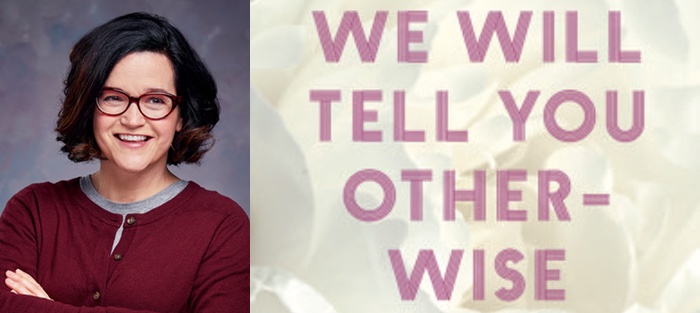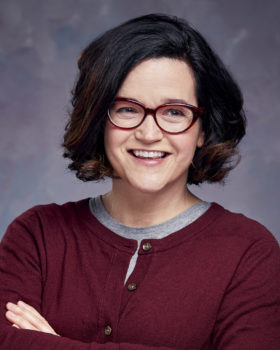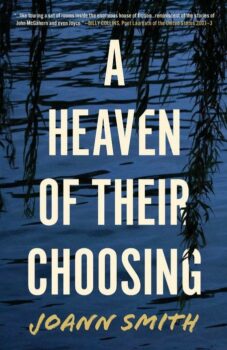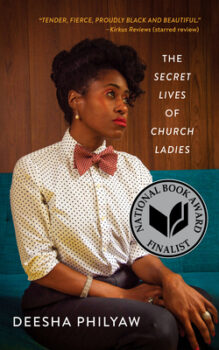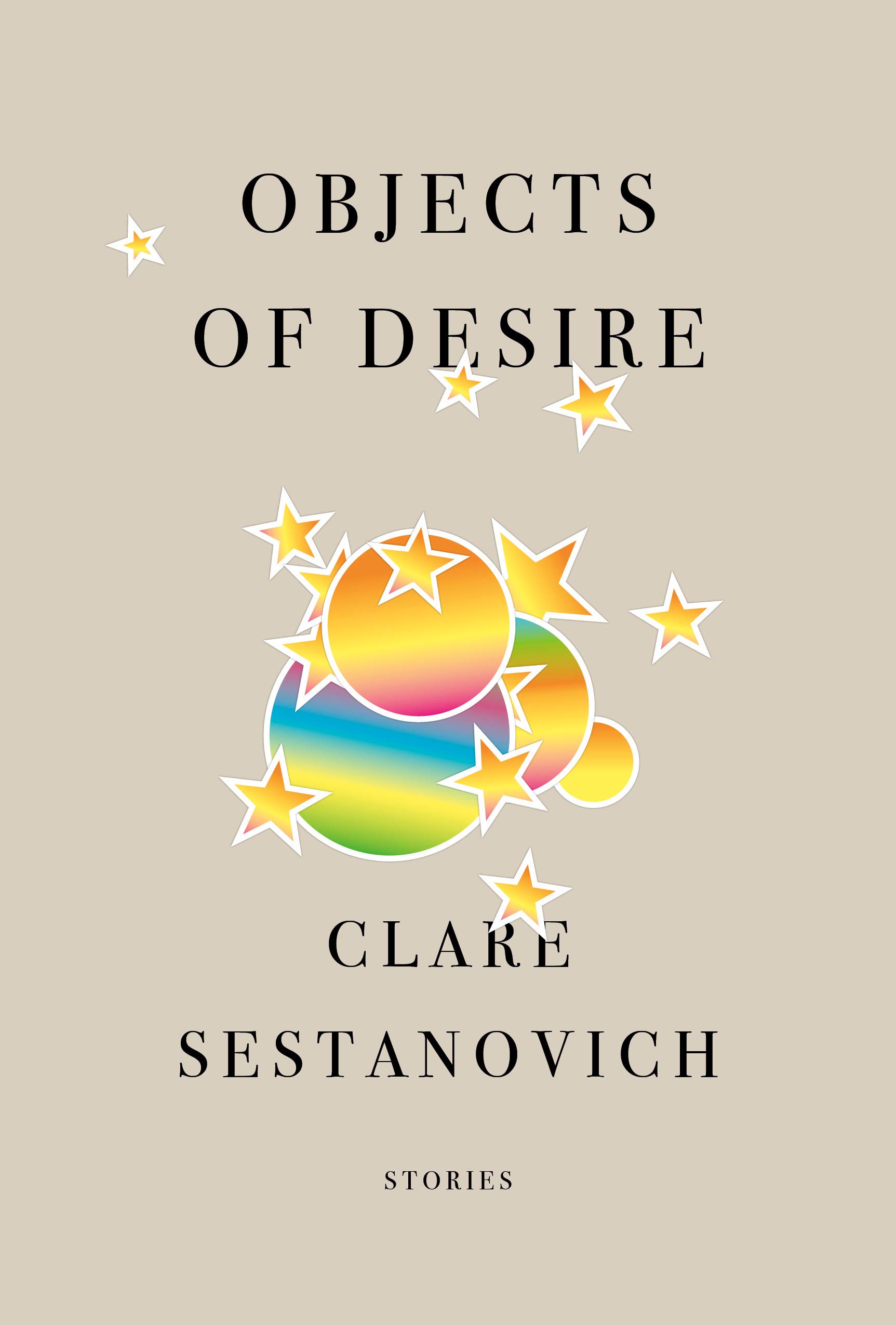I met Beth Mayer a few years ago at the Loft Literary Center. We stood in the liminal space between the café and the classrooms holding beverages, about to head in opposite directions. I confessed to writing smut and she confessed to writing literary fiction. I have been a fan ever since.
When I read her prize-winning short story collection, We Will Tell You Otherwise (Black Lawrence Press), I became an even bigger fan. If you read her answers to these questions, you’ll understand why.
Interview:
Sam Tschida: Speaking of our first meeting, I was delighted and surprised to find that you aren’t snobby in the least despite being an author of the literary persuasion. How does this work? What are your thoughts on genre vs. literary fiction?
Beth Mayer: And I was relieved that you, as someone who has published so many books and got paid on the regular, were down-to-earth and humble. So there you go! The idea of hierarchies in the publishing world seems arbitrary and elitist to me. As a reader, I like compelling stories and excellent writing. As a writer, I am fascinated and inspired by the way formerly distinct genres—like graphic narratives, speculative fiction, YA—seem to be melding into new shapes. If it’s good writing, then I want to read all of it.
 In genre fiction, we are slaves to the “high-concept hook.” If you can’t sell an idea in less than two sentences, you might as well go back to your cubicle (or that’s how it feels at least). Do you feel that pressure in the world of short story at all? If not, how do you think I’d be at writing short stories? JK.
In genre fiction, we are slaves to the “high-concept hook.” If you can’t sell an idea in less than two sentences, you might as well go back to your cubicle (or that’s how it feels at least). Do you feel that pressure in the world of short story at all? If not, how do you think I’d be at writing short stories? JK.
Since I make my living as a college instructor, I don’t have some of the external pressure that folks under contract to write a certain project might have. Ideally, as writers we can write what compels and interests us. How would I pitch a short story? An essay? Sure. Not a problem. I love a good writing challenge, a prompt, a word count, a deadline. That’s fun. But could I write a short story under contract? Even the idea of that makes me nervous.
And, for real, you would write killer short stories! Do it.
Many of your stories are set in the past. Is there a particular time period that inspires you and why?
Since I came of age in the ’70s and ’80s, I know them well, so I often just subconsciously land there. Now that I am grown and have some context with history, the ’70s fascinate me as a critical time for women, social justice, and the environment. I am going back there as a writer and researcher, which is both strange and kind of inspiring.
Let me just tell you, I love this whole short story collection, and in particular “But I Will Tell You Otherwise.” I couldn’t agree with Janie more when she said, “I knew right then that Cha Cha McGee was what people would call trouble. And I knew that I wanted to be her friend.” Where did Cha Cha come from?
Thank you! I do love Cha Cha McGee. She seems to stay with people, which makes me happy. The seed for this story was reading Nabokov’s Lolita, which was a painful and pivotal book for me as a writer and a woman. For those who haven’t read the book, forget about the creepy—some would say sexy? no, thank you—movie. That book haunted me and I wanted to save Lolita, to save all of the Lolitas. I wanted to imagine a triumphant redemption for her. Cha Cha is not Lolita, but rather a confluence of many of the vulnerable girls who I knew growing up.
In “Tell Me Something I Don’t Know,” you write, “The truth is, Lora has always been pretty skilled at being miserable. Ethan’s brain tumor has just given her the chance to get better.” I love how you don’t let Lora get away with any BS. It makes me wonder, are people uncomfortable around you because you can see right through them? They should be.
To be honest? Yes, sometimes! And I have absolutely no poker face. It’s terrible.
Many of your characters are super smart and educated. I write about smart people, too, which sometimes intimidates me. Like, can I pull it off? Or is it just going to come off as a dumb character in black glasses with a sham diploma? Do you think you can write a character smarter, wiser, more insightful than you are?
I love this question and have wondered the same thing. When I write these smarty-pants characters, I learn a lot. Our characters can send us to Google or archives or whatever they demand of us. And sometimes I think writing them might help me tap into those parts of my brain that would otherwise be dormant. That’s the majority of my brain, right? Says science. Isn’t it fun to have those “Where did that come from?” moments? If a character is born and they happen to be a genius, I think we need to let them drive and go for it.
Regarding the following passage from “Tell the Swede I’m Game”—
I had already checked out her website. The black and white headshot didn’t fool me, her symmetrical teeth and intelligent nose. She was so pretty. I had already forgiven her for being pretentious.
Were you talking about me?
Yes! Your teeth are ah-may-zing, Sam! Please spill the deets on your skin regime, too.
I love the family road trip to toxic waste site in “Let Her Tell the Way”—who hasn’t been on one those? You’re brilliant. Did a family vacation of your own inspire this?
My own family usually went to my grandparents’ cottage for summer vacations, which we had down to a science and were pretty uneventful. One of the sparks for this story was actually an art exhibit about quintessential vacations in the US. I was immersed in that for a project with a friend’s reading series called Talking Image Connection (TIC) when I became obsessed with some iconic Americana and AAA trip-tiks.
Are we all Bill Murray in Ground Hog Day, revisiting the same themes in our work over and over again, or is it just me? Sometimes I feel like I’m just reworking the same ideas in every piece. Have the themes in your stories changed over the years?
This is true for me as well. Maybe it’s a good thing, though, and we should just let it work itself out.
Here’s a metaphor for you. My husband and I recently toured Sam Maloof’s home and studio. For those not familiar with Maloof, he was one of the most acclaimed furniture makers—artists, really—in the US. He worked well into his nineties making chairs. He spent his whole life perfecting his chair design. You can see his process and vision through the decades by looking closely at the subtle differences in his chairs. They are all beautiful to me, but they change and evolve over the course of the artist’s life. And he did refine and perfect his chair. There is nothing else like it. Thank goodness he didn’t talk himself out of that work.
The Midwest is clearly a source of inspiration for you. Are you from the Midwest? How do you see us so clearly?
The settings of my stories often happen organically, for both place and time. I grew up in the Chicago area and moved to the Minnesota when I was fifteen. Summers were spent in Wisconsin at my grandparents’ cottage. If I am seeing Midwesterners clearly, which I hope is true, that is an accumulation of experience and observation and curiosity and, of course, speculation and imagination. The ongoing work of the writer, I think. Midwesterners, like me, are ordinary and extraordinary and complicated humans. When I critique the Midwest, my intention is to do so with love and some self-awareness about my own character defects. And some humility.
How much Netflix do you watch? Be honest.
So much! Shows featuring strong female comics are some of my favorites. Lately, I have been watching old episodes of the Carol Burnett Show on Hulu. I love to laugh. In fact, I think I need to laugh every day in order to survive this world.
Was I right? Do you love her now? You should. Beth is an insightful and talented writer and a lovely human being. I can’t wait to add We Will Tell You Otherwise to my bookshelf and attend the release party, coincidentally at The Loft where I will be excited to reenact our initial meeting by standing around holding beverages and talking about books.

